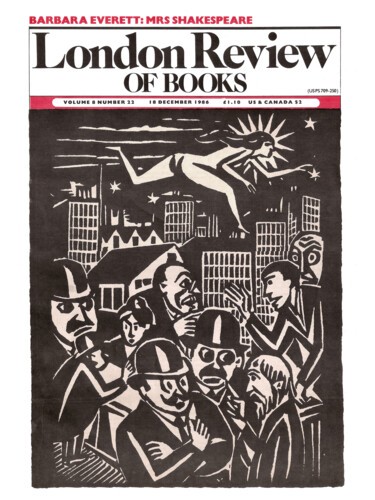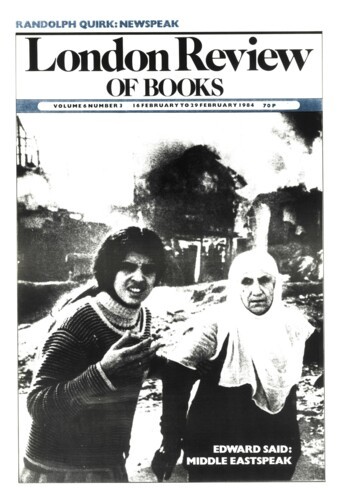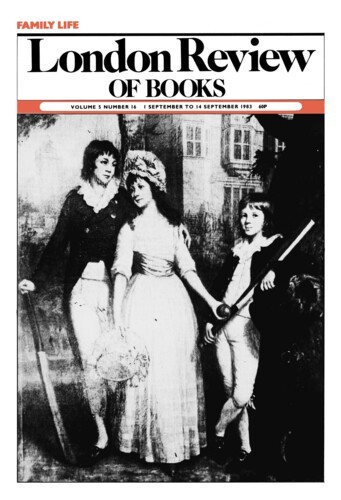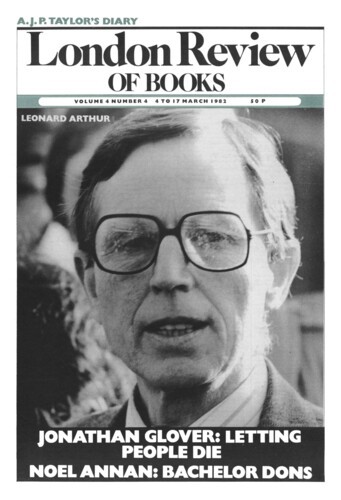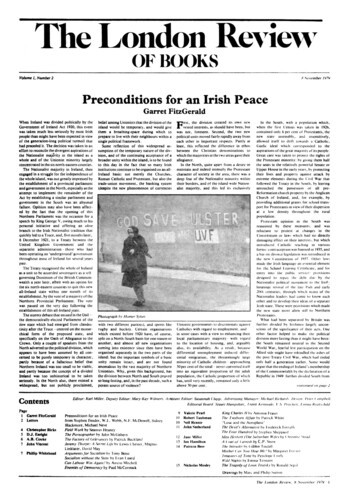James Darke
Euphony
16 February 1984
Poem: ‘Family Matter’
James Darke, 1 September 1983
I thought I saw my mother. There were snaps Of someone else’s children in her hand. A picture that affected me. But then I’d never been to see her very much.
Mother of my dreams, who knew the hand she held. Tracked to her dingy room in some frail place, Flat out in bed. And yet it was as if I had to break the door down to get in.
Benson’s Pleasure
4 March 1982
Miseries
8 November 1979
Read anywhere with the London Review of Books app, available now from the App Store for Apple devices, Google Play for Android devices and Amazon for your Kindle Fire.
Sign up to our newsletter
For highlights from the latest issue, our archive and the blog, as well as news, events and exclusive promotions.
